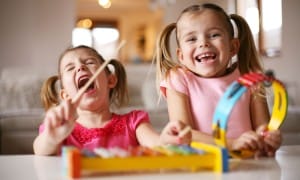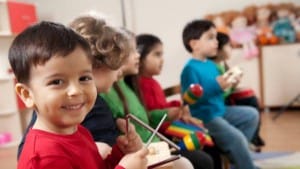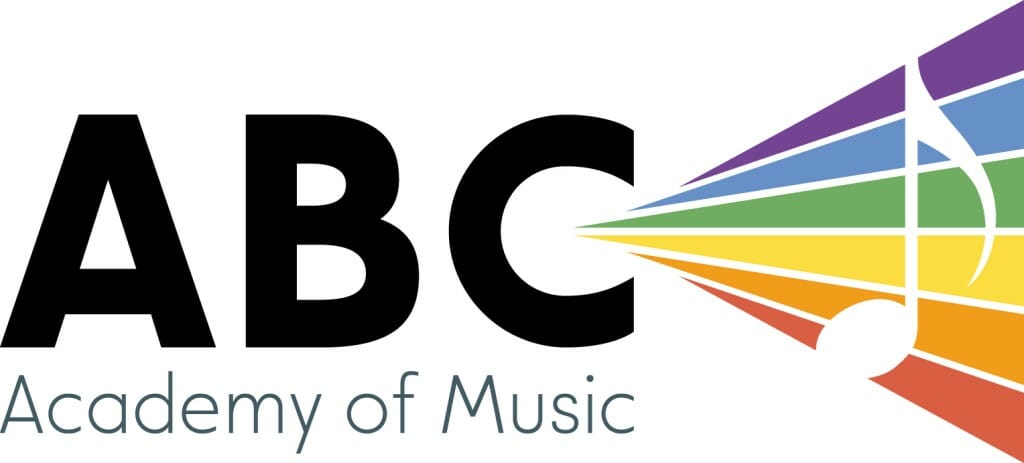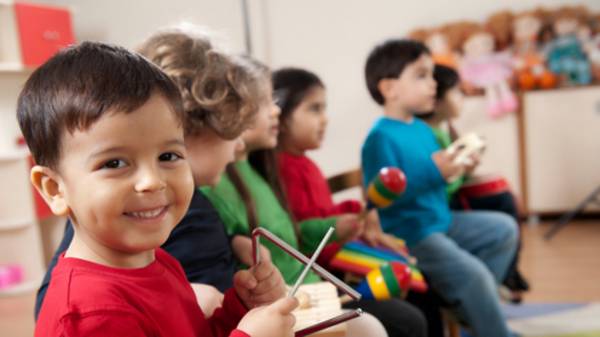Enhance your child’s emotional well-being, self-esteem, and logical thinking with Music Practices. Fun music curriculum boost kid’s positive emotions. Did you know that music lessons can also be a powerful tool for enhancing logical thinking and problem-solving skills?
In this blog post, you’ll explore how fun music lessons for adults, and music lessons for children can help build positive emotions and boost your little one’s logical thinking abilities.
Positive Emotions through Music Practices- the Connection
Before diving into the world of logical thinking, let’s first understand the emotional impact of music. Music has an incredible ability to influence our emotions. When kids listen to catchy tunes or play a musical instrument, children’s brains release dopamine, a neurotransmitter associated with gladness and reward. This is why music can instantly lift kids’ spirits and make your children feel happier.
Emotions in Harmony
From the moment they hear a catchy tune, children c

Music is a powerful tool for nurturing positive emotions
an’t resist moving to the beat. Music elicits an emotional response, bringing joy, excitement, and even calmness. Encouraging kids to explore these emotions through music helps them learn to recognize and express their feelings.
Fun activities like dancing, clapping, or playing musical instruments in a group setting foster a sense of togetherness and emotional connection. This early social interaction contributes to the development of empathy and communication skills, which are essential for emotional intelligence.
Music as a Stress Reliever
One of the ways music contributes to positive emotions is by reducing stress. Playing an instrument or even just listening to soothing music can lower cortisol levels, the hormone responsible for stress. As stress levels decrease, feelings of happiness and relaxation increase.
Learn more about private music lessons, and fun music curriculum, programs tailored for all ages at https://www.music-lessons.ca/toronto/contact-us/
Logical Thinking and Music: the Connection
- Pattern Recognition: music is full of patterns. When children learn to play a musical instrument, your kids are essentially decoding complex patterns. This practice can translate into improved pattern recognition skills, which are essential for logical thinking and problem-solving.
- Sing-Alongs: engage in sing-along sessions with catchy, age-appropriate songs. Encourage your toddler to sing along with you, teaching them new words and melodies.
- Mathematical Thinking: many aspects of music, such as rhythm and timing, are deeply rooted in mathematics. Learning to read music creates an understanding of its mathematical underpinnings and sharpens your children’s analytical skills and mathematical thinking.
- Creativity and Problem Solving: music encourages creativity. When kids are enrolled and involved in music programs tailored for their age, or they improvise during a performance, children are engaging in creative problem-solving. A lot of these processes are done with others which means they are also developing valuable collaborative and cooperation skills. This process can help preschoolers to think outside the box and come up with innovative solutions in other areas of life, which they will need as professionals and in their personal interactions for the rest of their lives.
- Concentration and Focus: Learning a musical instrument requires, and actively develops concentration and focus. These skills can be transferred to other tasks, improving little one’s ability to concentrate on tasks, or challenges and find logical solutions.
Check out our fun music curriculum at ABC Academy of Music (Music School at)
https://www.music-lessons.ca/toronto/contact-us/ and get your free demo class that suits your busy lifestyle.

Let your child experiment with sounds and rhythms.
Making Music even More Fun
Try these tips to get more out of your family’s musical journeys and experiences:
- Musical Story time: combining storytelling with music by reading books that include songs or using musical instruments to enhance the story’s atmosphere.
- Dance Parties: having spontaneous dances, where you and your toddler can move to the rhythm of different songs. Dancing promotes physical activity, coordination, and emotional expression, and bonds the whole family.
- Instrument Exploration: provide your toddler with simple musical instruments like maracas, drums, or xylophones and let them experiment with sounds and rhythms.
- Music Classes: enroll your toddler in a music class designed for their age group. ABC Academy of music classes and programs incorporate singing, dancing, and playing instruments in a well-structured and educational environment, according to your little one’s age.
Music is a powerful tool for nurturing positive emotions and logical thinking in children. Through fun music practices, music lessons, and tailored music programs for kids of all ages. They can explore their emotions, boost their confidence, and sharpen their cognitive skills. So, why not make music a part of your children’s daily routine and watch them grow into more emotionally intelligent and logical thinkers?
Private music lessons for children, and tailored music programs for babies and toddlers, is a journey filled with joy, learning, and harmony.
Contact us to enroll your child and embark on a melodic adventure, book your free demo class today https://www.music-lessons.ca/toronto/classes/ Abc Academy of Music (Music School), looking forward to seeing you!
“PS SECTION”:
DID YOU FIND THIS INTERESTING? Check out our post
“Music an enjoyable way to boosting memory, attention, and social skills in preschoolers”
**Link is in Progress**
Additional Reading for Your Interest:
Child development and early learning (4)
Musical Storytelling with Children Literature



